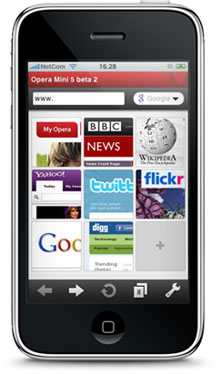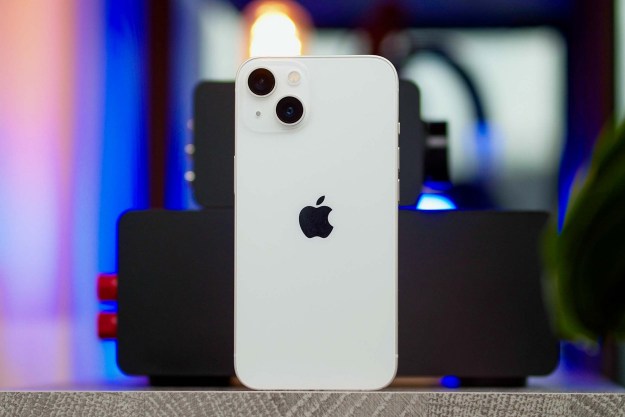
Opera Software ASA announced Wednesday that it will unveil an iPhone version of its Opera Mini mobile phone browser at an international tech conference next week despite not having approached iPhone maker Apple about the move.
The Norwegian firm has not set a release date for its iPhone browser and has not yet sought approval to distribute the browser from Apple’s iPhone applications store, Opera spokeswoman Katrin Jaakson said.
But Jaakson said Opera “does not see any reason why it wouldn’t be accepted. We obviously hope that Apple will not deny their users a choice when it comes to what browser they use.”
The iPhone’s default browser is the Apple-developed Safari.
Following the announcement, Opera shares rose 2.5 percent, to 20.40 kroner ($3.46), in midday trading in Oslo.
Currently, Opera offers its Mini browser for free. The browser has become known for its ability to compress full Web sites for mobile use, allowing quicker Internet access than regular browser and lower user costs because it requires less bandwidth.
“Opera’s mission is to bring the Web to the world, and by making Opera Mini available on yet another platform, we are one step closer,” Opera co-founder Jon von Tetzchner said.
Opera will present its iPhone browser at the 2010 Mobile World Congress in Barcelona, Spain, which will run from Feb. 15-18.
In the late 90s and early 2000s, the Opera desktop browser was a strong alternative to Microsoft Corp.’s Internet Explorer and Time Warner Inc.’s Netscape. But its popularity has diminished with the rise of Netscape’s successor, Mozilla’s Firefox.
Based in Oslo, Opera employs 760 people in 10 countries.
Editors' Recommendations
- Best Apple deals: Save on AirPods, Apple Watch, iPad, MacBook
- How to find your phone number on iPhone or Android
- iPhone SE deals: Refurbished 2nd and 3rd Gen iPhones
- Apple is about to do the unthinkable to its iPads
- The best iPads in 2024: the 5 best ones you should buy


